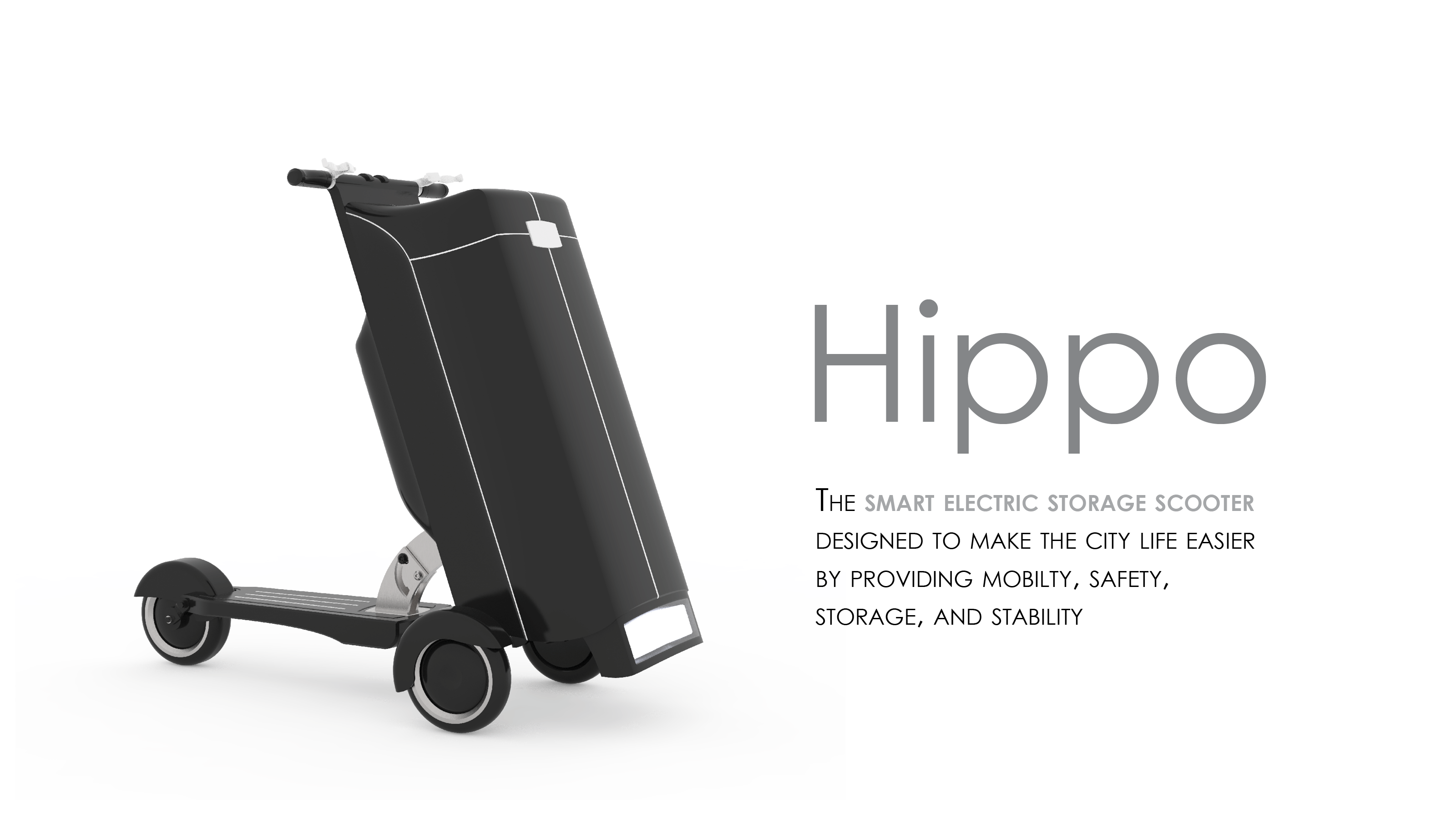
Early December, senior Industrial Design student Annaleise Gray was surprised with the news her studio project, the Hippo Storage Electric Scooter, was named a finalist in the 2020 15th Annual China Hardware Products International Industrial Design Competition Awards. The announcement came during the presentation of her design to fellow studio classmates. Gray's Hippo went on to receive the Bronze Prize in the scooter and motorcycle category, recognized as this year’s only winning submission by an American designer.
The project originated as a studio assignment by Professor Mark Kimbrough charging students to create a motor vehicle that was not a car and encouraged each student to submit their design into an annual competition. Due to the ongoing COVID-19 pandemic, Gray chose to enter her project to the competition held by the Zhejiang University of Technology School of Architecture and Design because the competition only required a digital submission. Fabrication resources and opportunities have been limited to students since the start of the pandemic.
"Automotive design transportation is not my strong suit, so at first I was not excited about the project," said Gray.
Initially, Gray considered creating a scooter that was useful for people who live in the city, including college students, alleviating the burden of transporting laundry several floors or down the street to the laundromat. When she discovered Kimbrough required the design to be electric, Gray pivoted and developed a multipurpose scooter lending itself to city transportation.
"I was thinking of people who live in city apartments or studios and how they commute to work without owning a car," Gray explained. "I have ridden traditional electric scooters, but they are hard to transport a lot of items while also finding your balance."
Gray designed Hippo to provide city users with a safe way to efficiently move throughout the city quickly while also securely storing items on the go. The spacious compartment utilizes smartphone technology to lock and unlock the Hippo case, making it easier for users to manage. Users can also take advantage of the retractable phone mount, wireless charging, and two cupholders.
"I wanted to avoid scooters that fold up because they are just awkward," said Gray. "I felt that if this is something you are going to ride to your workplace and then keep in your office, it should not look ridiculous or even like a scooter when it is stored."
Three additional UH projects also made it to the finals in the annual competition: Argo – Trace by Joshua Alarcon, Anthony Lozano, and Francisco Grandi; Mericyle by Alexa Baeza; and Neo by Diana Hernandez.
"This international design competition was a unique opportunity for our students to compete on the world stage," said Kimbrough. "Annaleise was able to define research parameters of urban transport and life that ultimately created a nexus of urban living around the world."
The Hines College's Industrial Design program was established in 2003, the first of its kind in a four-state region. Alumni and students have consistently received awards and recognition, including top prizes from the Industrial Designer's Society of America, International Housewares Association, International Contemporary Furniture Fair, Dubai Global Grad Show, and Makeup NYC.